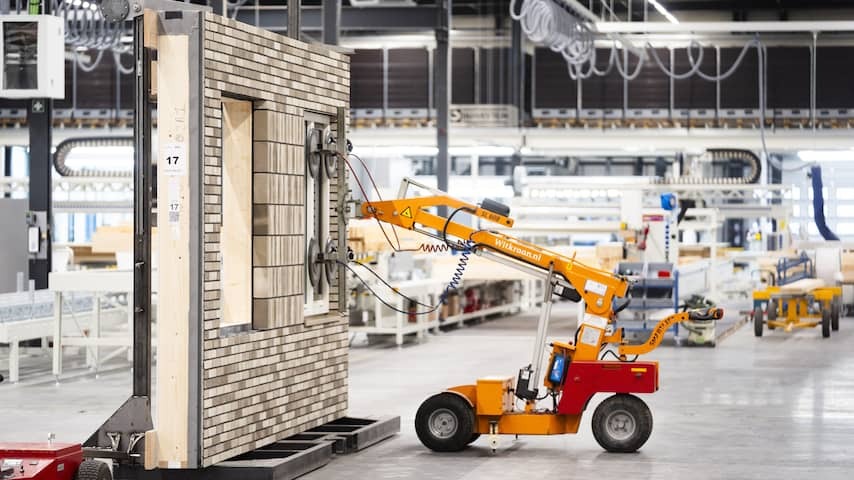
There should be 100,000 new homes built in the Netherlands every year, and there are enough opportunities to achieve that sustainably, the advisory council Rli concludes. Builders want to switch from steel to wood, but the government remains silent. A new construction crisis is looming.
“A rapid shift to building homes with sustainable materials is necessary,” writes the Council for the Environment and Infrastructure (Rli), an independent advisory body to the government. Conventional materials such as concrete and steel are responsible for a large part of the CO2 emissions in the Netherlands. Without a shift, the same thing could happen as with the poor water quality or the nitrogen crisis, which has brought a lot of construction to a standstill.
Despite the warning, the advice is very optimistic, says council member and committee chairman Karin Sluis of the Rli. “A lot is possible with sustainable building. Construction companies are ready. But it is not happening yet.” Some frontrunners in the construction industry are building with sustainable materials, but about 60 percent of the construction sector is waiting for clarity, such as rules for emissions and material use.
“The government refuses to provide clarity,” says Sluis. “There is no coercion and no price incentive. While the construction chain consists of more than 100,000 parties who all have to work more sustainably. Architects, contractors and installers, for example. They are motivated, but need clarity. They cannot make that change individually.”
The Rli believes that the idea that sustainable building would cost more time and money is a persistent myth that hinders the transition. This plays a role in the construction industry, with the government and in the financial sector. Factory-built construction is faster, which also reduces costs. Several parties see factory-built construction as an important answer to the housing crisis.
Every year, 100,000 homes must be added to ensure that people have a chance at an affordable home. There already seems to be a construction dip.
Steeds strengere eisen vanaf 2030
Sustainable building also offers important benefits for residents, says Sluis. Take the extreme heat. “Homes made of wood, for example, react differently to cold and heat and provide a better indoor climate.” But because little research has been done into it, the claim that this form of construction is healthier cannot be substantiated, Sluis adds. But the Rli hears positive sounds from builders who send out surveys among residents of sustainable homes.
Construction companies must get to work, because from 2030 the requirements from the European Union to be able to achieve climate neutrality in 2050 will become increasingly strict. If the companies do not achieve this, parts of the construction will come to a standstill. They cannot wait for that, because construction projects require a long breath: a construction project often takes eight to ten years from planning to completion.
Kansen voor dit kabinet en het volgende
Because projects take years, the construction sector also needs predictable and clear government policy. Encourage sustainable building and set clear standards, advises the Rli. One national standard for CO2 emissions per square meter, Sluis gives as an example. “Now there are different rules in all kinds of places, for example from municipalities that set CO2 requirements because the national government does not. If the cabinet sets one good national standard, it will become clearer for builders.”
The question is what the cabinet can do now that it is demissionary. “We think this is a very promising advice for this cabinet and the next,” says Sluis. The Rli expects that housing construction will not be declared controversial, and that the outgoing cabinet can therefore continue with it. “For us this is a no-brainer. Win-win. It is such an optimistic message and it would be strange if a next cabinet would stop this.”